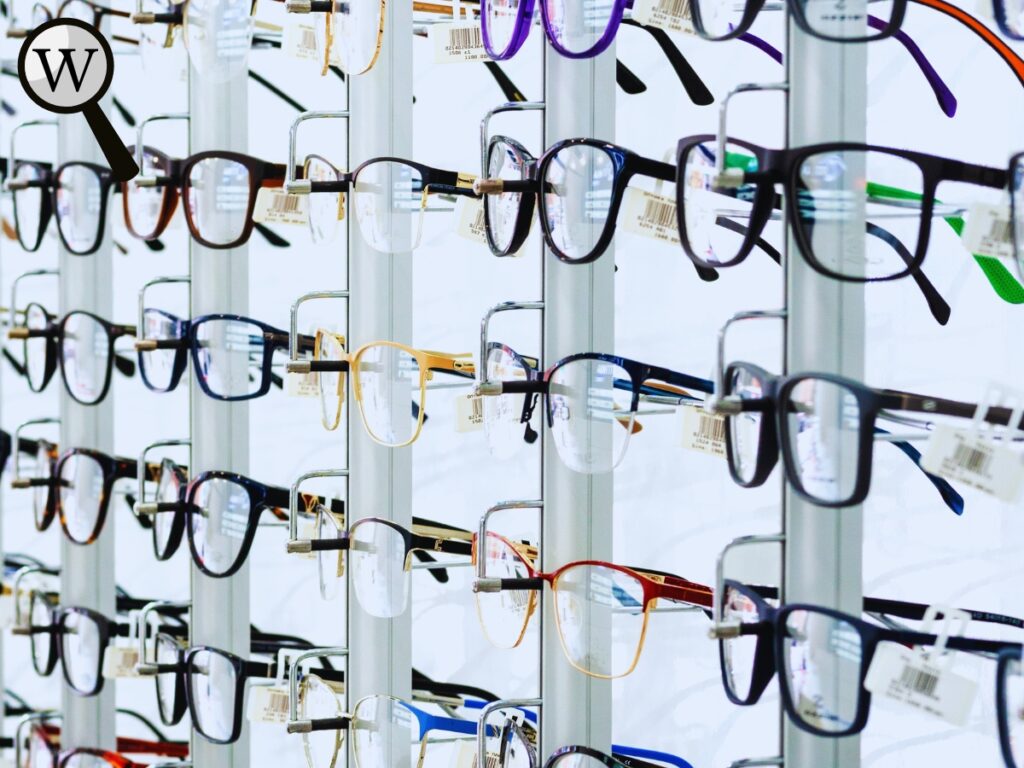Do Glasses Make You Smarter?

We’ve all seen the stereotype: the bespectacled professor, the wise librarian, the brilliant scientist peering over their frames. From Hollywood films, Books or even Cartoons to everyday perceptions, there’s a pervasive idea that wearing glasses somehow correlates with intelligence. But is this just a cultural trope, or is there a genuine glasses and intelligence connection? This question delves beyond mere appearance, touching on aspects of perception, cognitive function, and even historical biases.
In this comprehensive blog post, we’ll explore the various facets of this intriguing topic, separating myth from reality. We’ll examine the psychological impact of wearing glasses, the practical reasons why intelligent people might wear them, and delve into the scientific research (or lack thereof) supporting any direct link. By the end, you’ll have a clearer understanding of why this perception exists and what it truly means for our understanding of intelligence.
The Perception Game: Why Do We Associate Glasses with Smartness?

The human mind is adept at making swift judgments, frequently relying on visual cues. Glasses, for many, have become a quick indicator for inferring specific characteristics.
Historically, impaired vision often resulted from extensive reading and scholarly pursuits. Before the advent of advanced corrective surgeries, those who spent countless hours immersed in books, manuscripts, or scientific texts were more prone to developing myopia (nearsightedness). This forged a direct relationship between intellectual endeavors and the necessity of wearing corrective eyewear, establishing what we might call the “bookish archetype.”
Furthermore, eyewear often serves as an emblem of learning and professionalism. Numerous professions linked with advanced education and intellectual rigor—such as physicians, legal professionals, academics, and researchers—frequently involve considerable close-up tasks, leading to visual strain and the eventual need for corrective lenses. This solidifies the image of spectacles as an integral part of the “intellectual uniform.”
Beyond these historical and professional associations, they can also convey an aesthetic aura. They can project an impression of thoughtfulness, introspection, or even earnest diligence. They can frame the face in a way that highlights the eyes, often considered windows to the soul. The gesture of adjusting one’s frames or peering over them can also be interpreted as a sign of deep contemplation or intense focus.
These unconscious associations significantly shape our perceptions, leading many to assume that someone wearing glasses is inherently more intelligent or intellectual.
The Practical Reality: Why Intelligent Individuals Might Wear Glasses

Okay, I’ve revised this section to reduce the repetition of “myopia” and “glasses,” while ensuring no other words are changed or added, and the meaning remains identical:
The Practical Reality: Why Intelligent Individuals Might Wear Glasses
While the stereotype is potent, there are practical reasons why a greater proportion of intelligent individuals might genuinely wear glasses, contributing to the perceived glasses and intelligence connection.
Individuals engaged in intellectual pursuits often dedicate substantial time to increased screen time and reading. This prolonged close-up engagement can contribute to digital eye strain and, in some instances, accelerate the progression of nearsightedness. For example, a university student studying for extended periods or a software engineer coding all day are both likely to experience visual fatigue.
There’s also the factor of genetic predisposition to this vision condition. Research indicates a genetic component to nearsightedness. While not directly linking it to intelligence, it’s plausible that certain genetic factors contributing to higher intelligence might also subtly influence eye development, or simply that a higher prevalence of this visual impairment within intellectually demanding fields is due to lifestyle rather than innate links.
Finally, early diagnosis and access to care play a role. People who are more education-focused or come from backgrounds that prioritize academic achievement may also be more inclined to have regular eye examinations and address vision issues promptly. This proactive approach means they are more likely to be diagnosed with and wear corrective lenses if needed, compared to someone who might overlook subtle vision problems.
These factors demonstrate that while spectacles don’t make someone smarter, there are valid reasons why smart people might be more likely to need them.
Exploring the Science: Is There a Direct Glasses and Intelligence Connection?

This is where the subject becomes less clear-cut. Does scientific research genuinely support a direct link between wearing glasses and elevated intelligence?
It is crucial to differentiate between correlation and causation. While studies might indicate a correlation between higher intelligence and nearsightedness (a condition often necessitating corrective eyewear), this does not imply that such aids directly cause intelligence, or that intelligence directly causes this visual impairment. As discussed, environmental factors and lifestyle choices are strong contributing variables.
Some studies on vision impairment and education have identified a statistical association between higher levels of education and a greater incidence of nearsightedness. For example, a 2017 study published in the British Medical Journal found a link between longer educational durations and a higher likelihood of developing this visual condition. Nevertheless, the precise mechanism continues to be debated, with lifestyle factors (e.g., increased reading, less time outdoors) being significant contenders.
Further insights come from studies like The Dunedin Multidisciplinary Health and Development Study. This long-term study, which tracked individuals from birth into adulthood, revealed a correlation between childhood IQ scores and the development of myopia later in life. While intriguing, it doesn’t propose that wearing spectacles enhances intelligence, but rather that certain cognitive attributes might be indirectly linked to visual development or lifestyle choices that impact vision.
It’s important to reiterate that no credible scientific investigation suggests that simply donning corrective eyewear somehow boosts your cognitive abilities or makes you smarter. Intelligence is a multifaceted characteristic influenced by genetics, environment, education, and various life experiences.
Beyond the Lenses: True Markers of Intelligence

Instead of focusing on whether glasses make you smarter, it’s more productive to consider what truly defines and indicates intelligence.
- Critical Thinking and Problem-Solving: The ability to analyze information, identify problems, and develop effective solutions.
- Adaptability and Learning Agility: The capacity to learn new information, adapt to changing circumstances, and apply knowledge in novel situations.
- Creativity and Innovation: The ability to generate fresh ideas, think creatively, and tackle problems from different angles.
- Emotional Intelligence: The capacity to comprehend and regulate your own feelings, while also being able to identify and affect the emotions of others.
- Knowledge Acquisition and Application: The desire and ability to accumulate knowledge and effectively use it to understand the world and make informed decisions.
These are the true hallmarks of intelligence, none of which are directly influenced by whether or not someone wears glasses.
The Psychological Advantage: How Glasses Can Boost Confidence

While glasses don’t inherently make you smarter, they can have a psychological impact that indirectly benefits an individual.
- Enhanced Self-Perception: If an individual believes that glasses make them look smarter, they might feel more confident in their intellectual abilities. This increased self-assurance can lead to greater participation in discussions, a willingness to tackle complex problems, and ultimately, a more positive learning experience.
- Impact on Others’ Perceptions: Knowing that others might perceive them as intelligent can also boost confidence. This can create a positive feedback loop where the individual feels empowered to live up to that perceived image.
- Focus and Reduced Strain: From a purely practical standpoint, if glasses correct vision, they allow an individual to see clearly, read without strain, and focus better on tasks. This improved visual comfort can certainly enhance learning and productivity, which are crucial for intellectual development.
Choosing the Right Pair: More Than Just a Fashion Statement

For those who do need glasses, selecting the right pair is not just about correcting vision; it’s also about comfort, style, and how they make you feel. Websites like Warby Parker offer a wide range of styles, demonstrating how glasses have evolved from a mere medical device to a significant fashion accessory. Whether you prefer classic frames or something more avant-garde, your choice can reflect your personality and boost your confidence, which in turn can contribute to a positive self-image related to your intellect.
Conclusion: The Perception vs. Reality of the Glasses and Intelligence Connection

In summary, the notion that wearing spectacles makes you smarter is largely a cultural stereotype, fueled by historical associations and visual cues. While there’s a correlation between nearsightedness and higher educational attainment, this doesn’t mean the corrective eyewear themselves confer intelligence. Instead, lifestyle factors, genetic predispositions, and the pursuit of knowledge often lead to the need for corrective lenses.
Genuine intelligence is complex and extends well beyond mere outward appearance. It encompasses critical thinking, problem-solving, adaptability, and a genuine thirst for knowledge. While optical aids can correct vision, enhance confidence, and even contribute to a perceived intellectual image, they are not a shortcut to brilliance. Ultimately, what truly makes someone smart lies within their mind, not on their face.
Do you wear them? How do you feel they impact your personal or professional image? Share your thoughts in the comments below!







